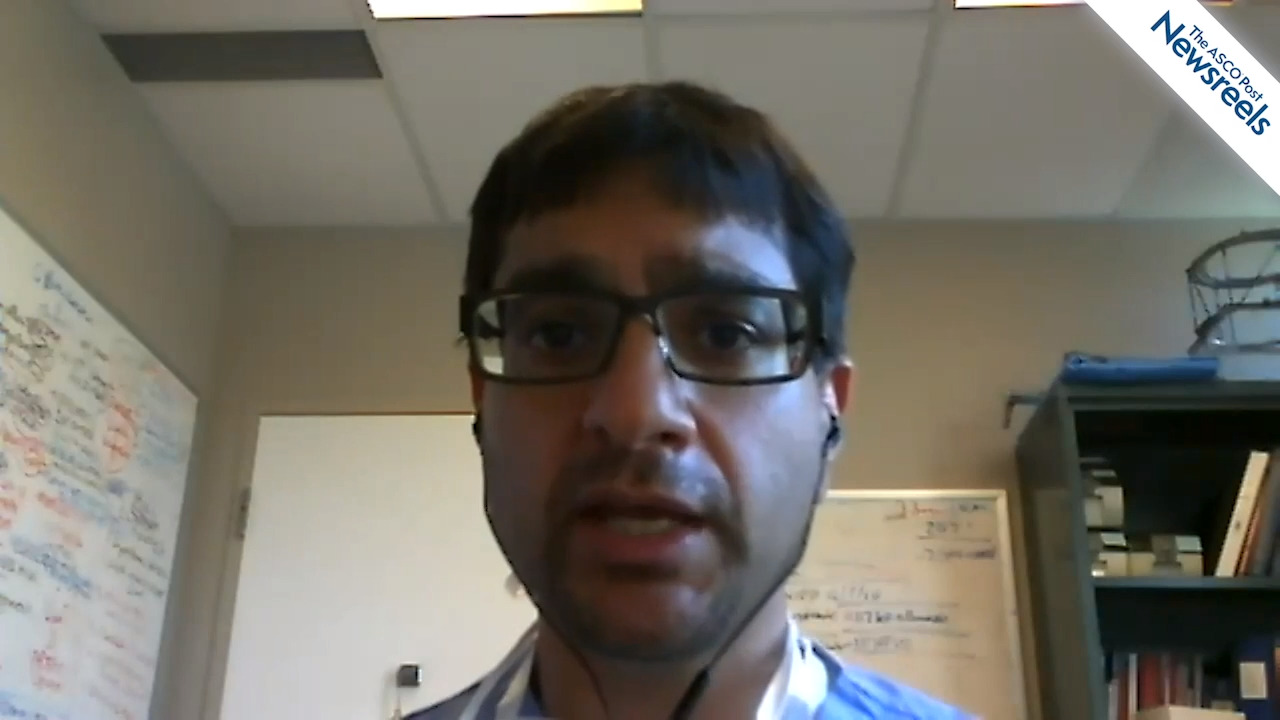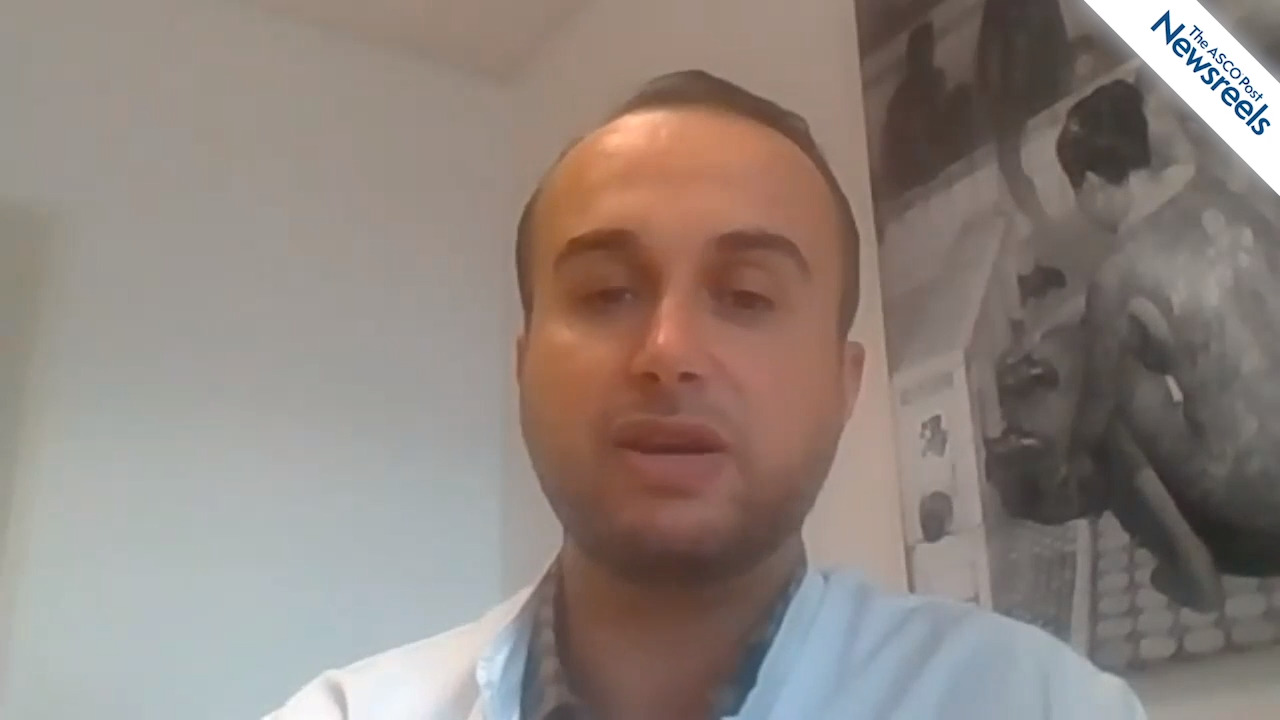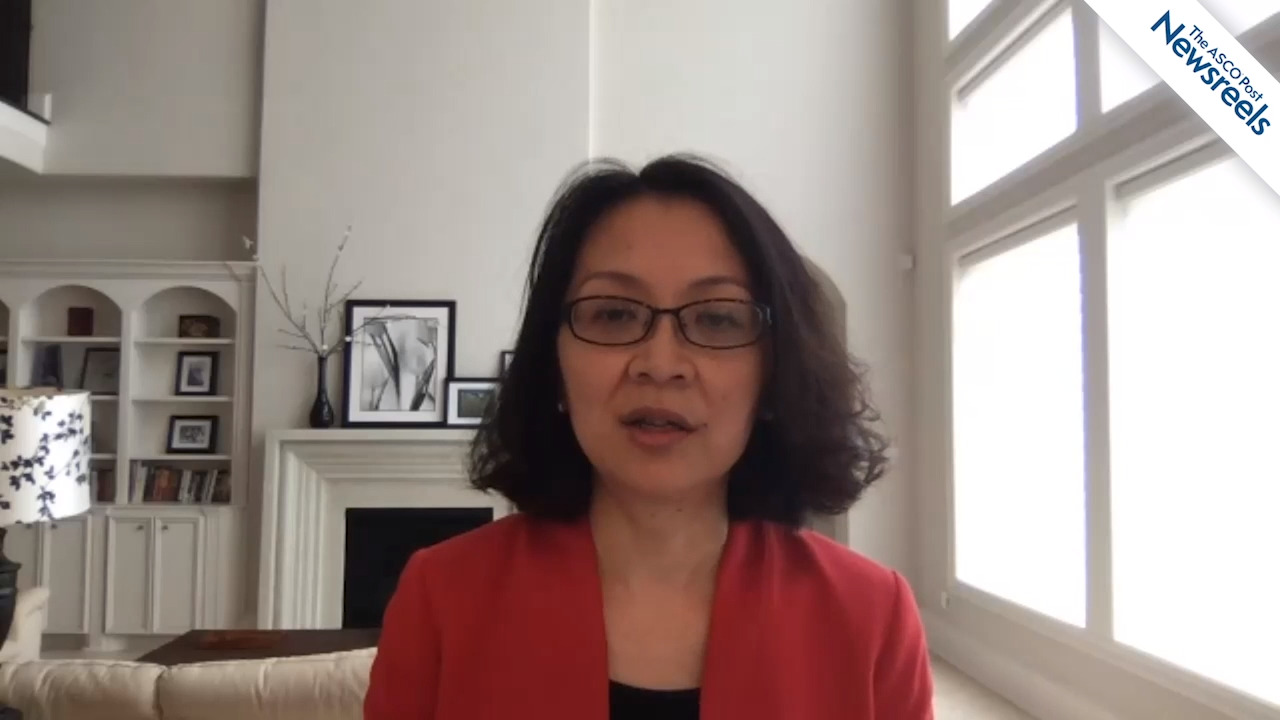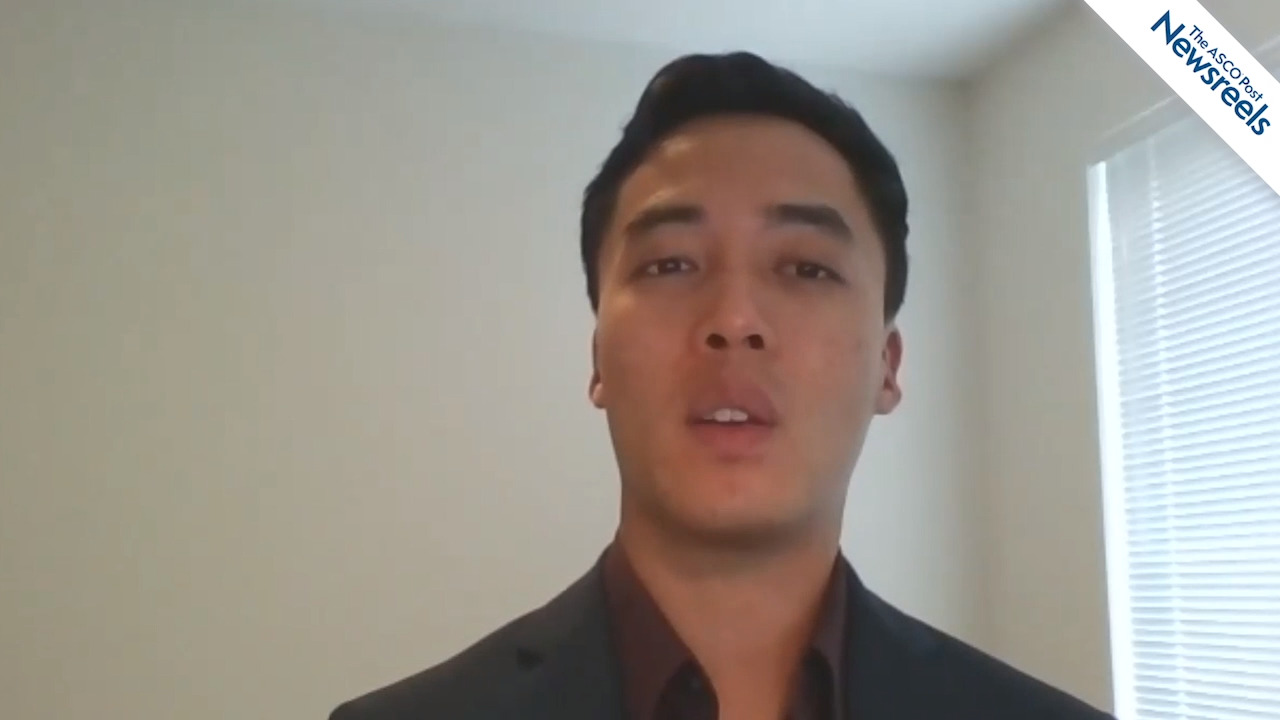Juliane Hörner-Rieber, MD, on Breast Cancer: Boosting Intensity-Modulated and Conventional Radiotherapies
2020 ASTRO Annual Meeting
Juliane Hörner-Rieber, MD, of Heidelberg University Hospital, discusses phase III results of the MINT trial, which showed that conventionally fractionated intensity-modulated radiotherapy with a simultaneous integrated boost was noninferior to three-dimensional conformal radiotherapy followed by a sequential boost for both local control and cosmesis in patients with breast cancer (Abstract 19).
The ASCO Post Staff
Arjun Sahgal, MD, of the Sunnybrook Health Sciences Centre, discusses results of the first phase III trial to suggest that dose escalation with stereotactic body radiotherapy may be superior to conventional palliative radiotherapy in improving pain outcomes for patients with spinal bone metastases (Abstract LBA2).
The ASCO Post Staff
Paul Sargos, MD, of the Institut Bergonié, discusses phase III findings from the GETUG-AFU 17 study, which compared adjuvant vs early salvage radiotherapy, both combined with short-term androgen-deprivation therapy after radical prostatectomy for localized prostate cancer. Although lacking statistical power, the study showed no benefit in event-free survival for adjuvant compared to salvage radiotherapy (Abstract 33).
The ASCO Post Staff
Jing Li, MD, PhD, of The University of Texas MD Anderson Cancer Center, discusses phase III results showing the use of stereotactic radiosurgery in patients with 4 to 15 brain metastases, compared with whole-brain radiotherapy, may better preserve cognitive function and minimize the interruption of systemic therapy without compromising overall survival (Abstract 41).
The ASCO Post Staff
Justin Oh, MD, of the University of British Columbia, discusses results from the ASCENDE-RT trial, which compared a low-dose–rate brachytherapy boost to a dose-escalated external-beam boost for patients with high- and intermediate-risk prostate cancers (Abstract 127).
The ASCO Post Staff
Neha Vapiwala, MD, of the University of Pennsylvania, who served as a discussant for LBA1, summarizes her review of this study of patients with prostate cancer who had biochemical recurrence in the post-prostatectomy setting, who were candidates for salvage radiotherapy, and who received either conventional imaging or PET scans to help determine the course of treatment.





